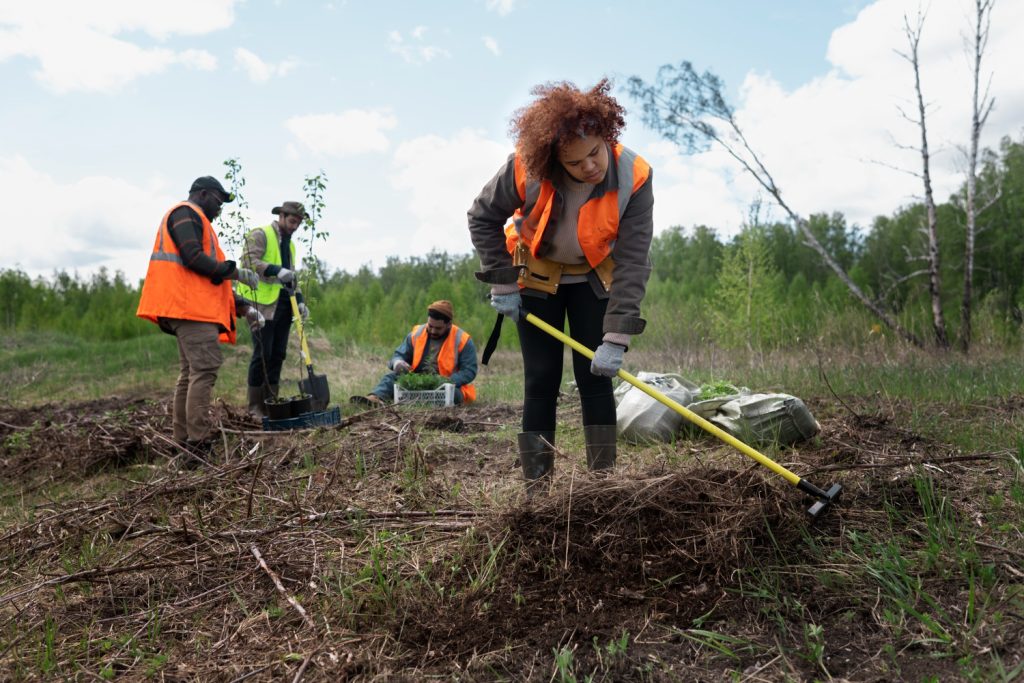Ground improvement encompasses various techniques and methods designed to enhance the engineering properties of soil, ensuring it can safely and durably support construction projects. This process strengthens weak, loose, or problematic soils, making them suitable for foundations and heavy structures. In the absence of adequate ground improvement, buildings and infrastructure may face risks of settling, cracking, or even collapsing over time due to inadequate soil conditions.
Improving Soil Stability and Strength
One of the primary advantages of ground improvement is the enhancement of soil stability and its load-bearing ability. Weak and unstable soil is unable to support structural loads effectively, which can result in uneven settlement and damage to structures. Techniques such as compaction, soil stabilization, and chemical treatment modify the soil to enhance its shear strength and decrease its compressibility, promoting safer and more stable construction.
Avoiding Settlement and Structural Damage
Settlement poses a significant risk to the durability of any structure. Ground improvement minimizes the likelihood of excessive or differential settlement by densifying the soil and enhancing its capacity to support loads uniformly. This approach helps prevent cracks, tilting, and damage to foundations and floors, thereby increasing the lifespan of buildings.
Minimizing Construction Costs and Delays
Introducing ground improvement at the onset of a construction project can yield substantial financial advantages. Enhancing soil stability diminishes the necessity for costly deep foundation solutions or future structural repairs. Additionally, it mitigates the risk of expensive delays that can arise from unstable ground conditions, water accumulation, or soil erosion. In summary, ground improvement facilitates smoother construction schedules and effective budget management.

Enhancing Durability in Challenging Conditions
Soils are susceptible to various environmental influences, such as erosion, weathering, and fluctuations in moisture, which can compromise the integrity of foundations over time. Ground improvement fortifies soils to better endure these pressures by lowering permeability and enhancing drainage. This results in more robust, weather-resistant foundations that can support structures for many years, even in harsh conditions.
Sustainable and Eco-Friendly Advantages
Modern ground improvement methods provide environmental advantages by minimizing the need for extensive excavation and earthworks that can damage the surrounding ecosystem. These techniques frequently utilize recycled materials and sustainable practices, which help to lower the carbon footprint associated with construction projects. This environmentally-friendly approach promotes green building initiatives and encourages responsible development.
Customized Solutions for Every Soil Condition
Each construction site presents distinct soil characteristics. Ground improvement offers various tailored solutions, such as vibro-compaction, stone columns, soil mixing, and grouting. The experts at ForteSOL assess soil reports and project requirements to propose the most suitable method, ensuring the foundation is optimized for long-term durability and safety.

Reasons to Choose ForteSOL for Ground Improvement
ForteSOL is recognized as Pakistan’s premier provider of ground improvement solutions, trusted by leading clients in the industrial, infrastructure, and energy sectors. Since its establishment in 2016, ForteSOL has transformed the ground engineering landscape through cutting-edge techniques, cost-effective solutions, and stringent quality control measures.
Partnering with ForteSOL means collaborating with experts who focus on:
- Tailored solutions that meet specific soil conditions and project requirements
- Cost-effective strategies that save significant sums by optimizing foundation expenses
- Efficient project management that delivers quicker results without sacrificing quality
- Commitment to sustainability and environmental awareness, minimizing ecological impacts and disruptions
With a strong track record of successful collaborations with companies like Hyundai Nishat, Apical Oil Terminal, Indus Home, and others, ForteSOL guarantees secure, stable, and durable ground foundations throughout Pakistan.
Benefits of Partnering with ForteSOL
By selecting ForteSOL for ground improvement, clients can enjoy several advantages:
- Improved soil strength and stability, ensuring long-term construction support
- Financial benefits through effective and innovative approaches
- Lowered construction risks and fewer future repair requirements
- Shorter project timelines with the guidance of experienced professionals
- Eco-friendly methods that help reduce environmental effects
- ForteSOL’s advanced technology and skilled team provide confidence that your foundation is built on a scientifically reinforced base.
Conclusion
Ground improvement is a vital investment for creating durable, safe, and economical construction projects.
It helps prevent structural issues and ground settling, cuts down on costs, and promotes environmental sustainability. In Pakistan, ForteSOL is a top choice for expert and personalized ground improvement services, ensuring strong foundations and successful project outcomes.
For dependable ground improvement solutions tailored to your construction projects, visit ForteSOL at https://fortesol.com/ and build your projects on a solid foundation.
